Transcription of Syllabus BE (Computer Engineering) 2008 Course
1 Syllabus BE ( computer engineering ) 2008 Course Preamble Dear Students and Teachers, we, the Board of Studies computer engineering , are very happy to present be computer engineering Syllabus (2008 Course ). We are sure you will find this Syllabus interesting and challenging. The objective of the Syllabus is to inculcate reading, innovative thinking, technical-writing and presentation habits in the students. Development of skills and imparting knowledge is also important part of Syllabus . To achieve these objectives teachers are encouraged to take home tutorials, class tutorials, students presentations and invited talks in addition to the lectures conducted by teachers. Review and interactive discussions on home tutorials, classroom tutorials and students presentation along with review of recent advances in the subject is a must.
2 There is mountainous growth in the areas of computer applications, subjects, technology and algorithms. The computer equipments are becoming very faster, granular with concurrent architectures and operating systems environments. Along with the Industry, the open-source movement has also contributed to the great extent. The education must withstand with this growth and demand of innovation and be the front-runner to lead the path of progress and innovation. We give you best wishes to take this Syllabus and travel the path of success. Board of Studies computer engineering BE ( computer engineering )- 2008 Course STRUCTURE Term-I Subject Code Subject Teaching Scheme Examination Scheme Total Marks Lect.
3 Pract. Th TW Pr Or 410441 Design & Analysis of Algorithms 04 100 100 410442 Principles of Compiler Design 04 100 100 410443 Object Oriented Modeling & Design 04 02 100 25 50 175 410444 Elective-I 03 02 100 25 50 175 410445 Elective-II 03 100 ---- --- 100 410446 computer Laboratory-I 04 ---- 50 050 410447 Project Work --- 02 --- 50 --- --- 050 Total 18 10 500 100 50 100 750 Total of Part I (A) 28 Hrs 750 Term II Subject Code Subject Teaching Scheme Examination Scheme Total Marks Lect. Pract Th TW Pr Or 410448 Distributed Operating Systems 04 --- 100 --- --- --- 100 410449 Advanced computer Architecture 04 100 100 410450 Elective-III 04 02 100 50 50 200 410451 Elective-IV 04 --- 100 --- --- 100 410452 computer Laboratory II 04 50 50 100 410447 Project Work 06 100 50 150 Total 16 12 400 200 50 100 750 Total of Part II (B) 28 Hrs 750 Grand Total (A+B) (A) + (B) 1500 Th: Theory TW: Term Work Pr: Practical Or.
4 Oral Elective I Elective II 1) Image Processing 1) Multimedia Systems 2) Design & Analysis of computer Networks 2) Mobile Computing 3) Artificial Intelligence 3) Embedded Systems 4) Software Architecture 4) Software Testing & Quality Assurance Elective III Elective IV 1) Pattern Recognition 1) VLSI & Digital System Design 2) High Performance networks 2) Operations Research 3) Neural Networks 3) Cloud Computing 4) Advanced Databases 4) Information Security or Open Elective Open Elective: Any other Electives that are being taught in Term II under the Faculty of engineering or individual college and Industry, together, can define new elective using framework of Elective IV defined in Syllabus structure and GET IT APPROVED FROM BOARD OF STUDIES computer engineering AND OTHER NECESSARY STATUTORY SYSTEMS IN THE UNIVERSITY OF PUNE BEFORE 30th DECEMBER.
5 The BE Project Term work assessment for Term I will be done by selecting panel of examiners amongst senior teachers of computer engineering . Existing prevailing practices are followed for all remaining examinations and assessment work. 410441: Design and Analysis of Algorithms Teaching Scheme: Examination Scheme Teaching 4 Hrs/Week Theory: 100 Marks Unit Content Teaching Scheme Unit I Asymptotic notations, necessary mathematical foundation, introduction to Algorithm, Algorithm specifications, Performance analysis, Review of proof techniques: Contradiction and Mathematical induction, Solving Recurrence Equations. Introduction to NP-Hard And NP-Complete Problems, Divide And Conquer And Greedy Strategy, Performance analysis of Algorithmic Strategies Divide and Conquer: General Strategy, Exponentiation, Quick Sort and Merge Sort.
6 Greedy Method: General Strategy, Knapsack problem, Job sequencing with Deadlines, Optimal merge patterns, Minimal Spanning Trees and Dijkstra's algorithm. 10 Unit II Dynamic Programming, Study of different ways to implement Knapsack Problem. Implementation of OBST, Traveling Salesperson Problem. General Strategy, Multistage graphs, OBST, 0/1 Knapsack, Traveling Salesperson Problem, Flow Shop Scheduling. 6 Unit III Backtracking: General Strategy, 8 Queen's problem, Graph Coloring, Hamiltonian Cycles, 0/1 Knapsack. Branch and Bound: General Strategy, 0/1 Knapsack, Traveling Salesperson Problem. Design of N Queen's problem, Hamiltonian Cycles 6 Unit IV Basic Concepts: Non deterministic algorithms, The classes NP Hard and NP Complete, Cook's Theorem, NP Hard graph problems: Clique Decision problem, Node cover Decision problem, Chromatic number decision problem, Directed Hamiltonian Cycle Problem, TSP Decision problem, AND/OR Graph decision problem, NP-Hard Scheduling problems: Scheduling Identical processors, Flow shop scheduling, Job shop scheduling.
7 NP-Hard Scheduling. Study of NP-Hard and NP-COMPLETE problems. Solving NP-COMPLETE problem. 6 Unit V Parallel Algorithms, Study of different graph problems. Implementation of different sorting problems on multiprocessor system. Computational Model, Basic Techniques and Algorithms, Complete Binary Tree, Pointer Doubling, Prefix Computation, Selection, Merging, Sorting, Graph Problems. 6 Unit VI Case Studies of Algorithmic Designs & Applications, Implementation of Huffman Problem. Deadlock detection and avoidance implementation. Image edge detection algorithms, Resource allocation algorithm with deadlock avoidance, Heuristic search algorithm, Coding theory algorithm 6 (Huffman coding), Sorting & Convex hulls algorithm.
8 Review and interactive discussions on home tutorials, classroom tutorials and students presentation. Review of recent advances in the subject. Text Books: 1. Horowitz and Sahani, "Fundamentals of computer Algorithms", 2ND Edition. University Press, ISBN: 978 81 7371 6126, 81 7371 6126 2. Bressard, "Fundamental of Algorithm.", PHI Reference Books: 1. Thomas H Cormen and Charles Leiserson, "Introduction to Algorithm" PHI 2. A. V. Aho and Ullman, "Design and Analysis of Algorithms", Pearson Education ISBN 978 81 317 0205 5 3. Horiowitz , Sahani: computer Algorithms / C++, ", 2ND Edition. University Press, ISBN: 978 81 7371 6119, 81 7371 611 0 41442 Principles of Compiler Design Teaching Scheme Examination Scheme Lectures: 4 Hrs/Week Theory: 100 marks Unit Contents Teaching Scheme Unit I Introduction to lexical Analysis and Syntax analysis.
9 Review of lexical analysis: alphabet, token, lexical error, Block schematic of lexical analyser, Introduction to phases of Compiler, Lexical Analysis. Automatic construction of lexical analyser-(LEX), LEX specification and features. Introduction: Role of parsers, Top down-RD parser, Predictive parsers, LL (k) parsers, Bottom up Parsers - Operator precedence parsers, shift-Reduce: SLR, LR (k), LALR etc. using ambiguous grammars. Error detection and recovery, Automatic construction of parsers (YACC), YACC specifications, 13 Unit II Introduction to Semantic Analysis and syntax directed translation, Need of semantic analysis, type checking and type conversion Syntax directed definitions, construction of syntax trees, bottom-up evaluation of S-attributed Definitions, L-attributed definitions, Top-down translation, 06 Unit III Declarations, assignment statements, iterative statements, case statements, arrays, structures, conditional statements, Boolean expressions, back patching, procedure calls, Intermediate Code Generation, Intermediate languages, Intermediate languages programming structures, Intermediate code generation using YACC.
10 Review and interactive discussions on home tutorials, classroom tutorials and students presentation. Review of recent advances in the subject. 06 Unit IV Run-time Storage organization, Storage organization and allocation strategies, Source language issues, Storage organization and allocation strategies for block structured and non block structured languages, Activation record, variable-length data, procedure parameters, nested procedures, access to non-local names, procedure Call and return, static and dynamic scope. Symbol Table organization and management Run-time Storage organization 05 Unit V Introduction: Issues in code generation, Basic blocks and flow graphs, next-use information, Target machine description, Register allocation and assignment, Dag representation of basic blocks, Peephole optimization, Generating code from a DAG, Dynamic programming, Code generator concept.
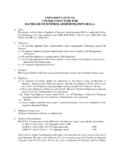
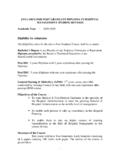
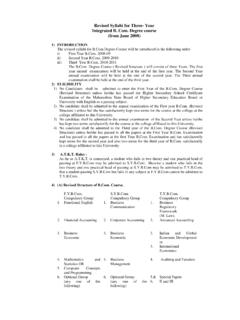
![[4372]-101 - Savitribai Phule Pune University](/cache/preview/f/c/3/4/c/a/0/f/thumb-fc34ca0f7a382c46206f2b1007598e60.jpg)


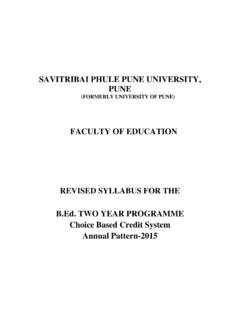
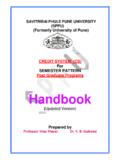
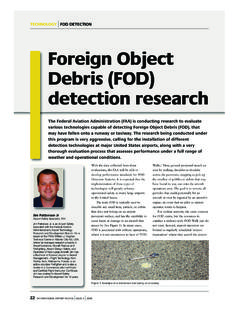
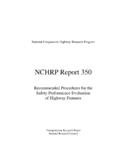
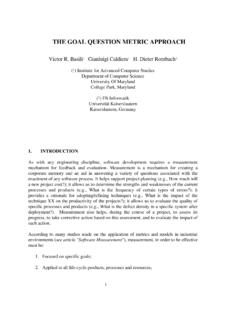
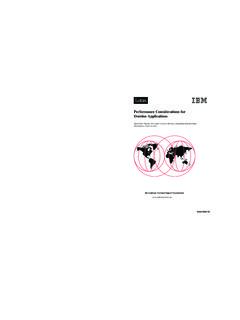
![ABSTRACT arXiv:1409.1556v6 [cs.CV] 10 Apr 2015](/cache/preview/4/e/0/e/4/4/2/c/thumb-4e0e442c20fc4f8e108fa20a1095af07.jpg)
